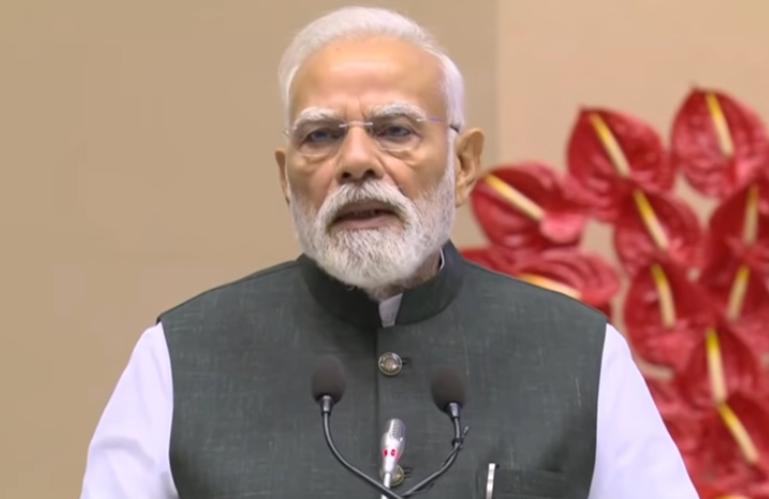Prime Minister Narendra Modi on Tuesday shared an article by Union Minister Bhupender Yadav, underscoring how India’s Mission LiFE (Lifestyle for Environment) is reviving traditional conservation systems and redefining them as modern acts of environmental responsibility.
Responding to Yadav’s post on X, the Prime Minister said, “In this must-read article, Union Minister Shri Bhupender Yadav writes that India’s Mission LiFE revives time-honoured conservation practices, from Tamil Nadu’s eri tank systems to Rajasthan’s johads, reframing them as conscious acts of planetary service. He highlights India’s message that real sustainability begins not with negotiations but with nurturing.”
Earlier, Yadav had shared the article titled “Breathe LiFE into Climate Change”, published ahead of the upcoming COP30 climate conference in Belém, Brazil. In his post, the Union Minister highlighted India’s leadership in global climate action, crediting the Modi government’s focus on lifestyle adaptation and clean technology.
“With the stage set for COP30, India stands at the forefront, championing lifestyle adaptations and advancements in clean technology. Under the leadership of PM Shri Narendra Modi ji, initiatives like PM Surya Ghar provide households with access to sustainable solar energy solutions. Achieving over 50% in non-fossil fuel capacity illustrates the nation’s swift evolution,” Yadav said.
In his article, Yadav emphasized that Mission LiFE bridges India’s ancient wisdom with modern sustainability goals by promoting responsible consumption and community-based environmental stewardship. According to an International Energy Agency (IEA) report cited in the piece, global adoption of LiFE-related practices could reduce annual CO₂ emissions by over 2 billion tonnes by 2030, nearly one-fifth of the total reduction needed to reach net-zero targets.
Yadav also detailed how India’s PM Surya Ghar: Muft Bijli Yojana – launched in February 2024 – has empowered one crore households to install rooftop solar systems, transforming consumers into energy producers. The scheme has already received nearly 58 lakh applications and added 4.9 GW of rooftop solar capacity.
India’s clean energy transition has been equally remarkable, the article noted, with non-fossil electricity generation capacity surpassing 50% in 2025, five years ahead of its revised Nationally Determined Contribution (NDC) target. The country’s solar capacity has expanded 45-fold, from 2.8 GW in 2014 to 127 GW in 2025, reflecting India’s rapid green transformation.
Highlighting India’s grassroots environmental movement, Yadav cited the ‘Ek Ped Maa Ke Naam’ initiative as a living embodiment of Mission LiFE’s principles. The nationwide tree-planting campaign has become one of the world’s largest community-driven climate actions, with over 250 crore trees planted since its launch in June 2024.
“Every sapling planted contributes to India’s NDCs under the Paris Agreement,” Yadav said, adding that over 14.7 lakh schools have joined the initiative through eco clubs, and ‘Ek Ped… 2.0’ now uses geotagging for real-time monitoring.
Yadav concluded his article with a reflection on India’s climate philosophy, “When we plant a sapling, we plant hope. That is India’s message – real sustainability begins not with negotiations but with nurturing.”














